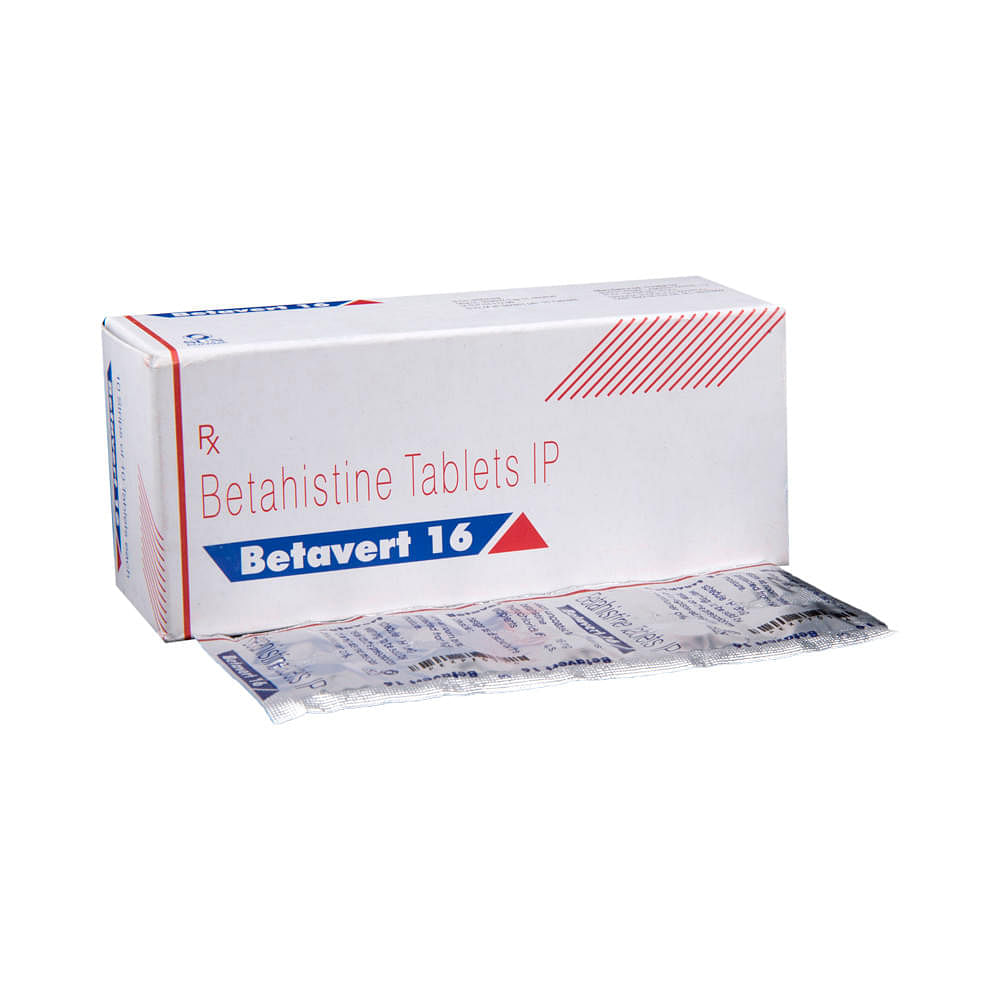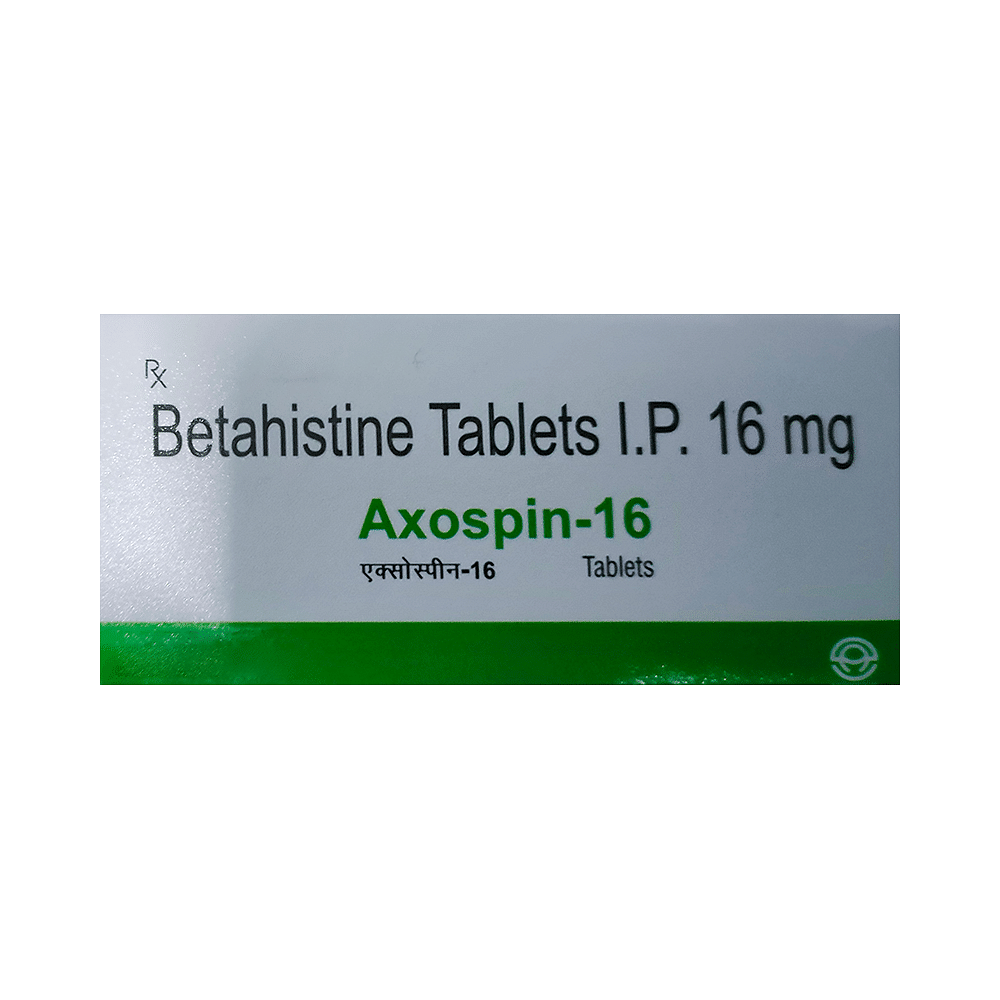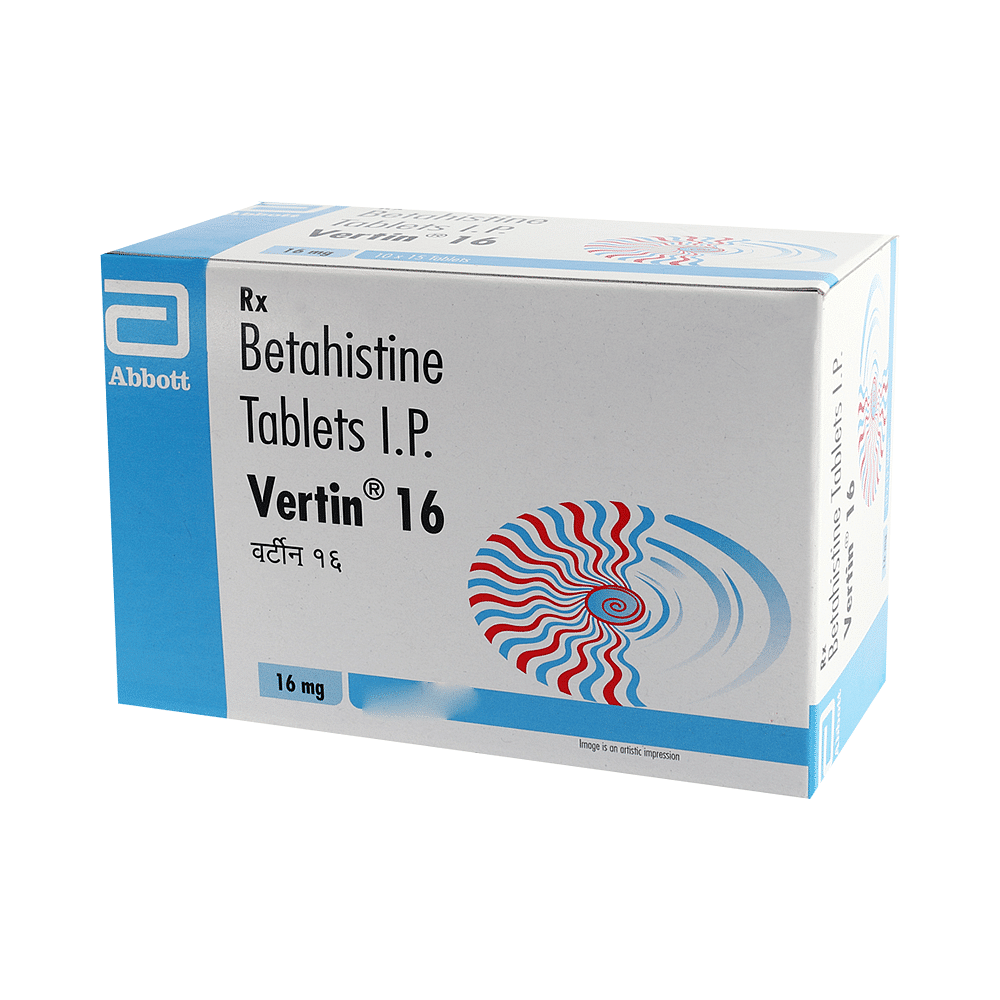
Vetahist 16mg Tablet
Manufacturer
Mova Pharmaceutical Pvt Ltd
Salt Composition
Betahistine (16mg)
Key Information
Short Description
Vetahist 16mg Tablet is used to prevent and treat a disorder of the inner ear known as Ménière’s disease.
Dosage Form
Tablet
Introduction
Vetahist 16mg Tablet should be swallowed whole with water and taken at the same time(s) each day to get the most benefit. Your doctor will decide what is the correct dose to relieve your symptoms and how often you need to take it. You may need to take this medicine for several months and you should take it for as long as prescribed by your doctor even if you start feeling better. The most common side effects include headache, feeling sick, and indigestion (dyspepsia). You may also get stomach pain and bloating. Taking the medicine with food can help reduce stomach problems.
Directions for Use
Take this medicine in the dose and duration as advised by your doctor. Swallow it as a whole. Do not chew, crush or break it. Vetahist 16mg Tablet may be taken with or without food but it is better to take it at a fixed time.
Safety Information
Side Effects
Headache Feeling sick Indigestion (dyspepsia) Stomach pain Bloating
Alcohol Warning
Consuming alcohol with Vetahist 16mg Tablet does not cause any harmful side effects.
Breastfeeding Warning
Vetahist 16mg Tablet is probably unsafe to use during breastfeeding. Limited human data suggests that the drug may pass into the breastmilk and harm the baby.
Pregnancy Warning
Vetahist 16mg Tablet may be unsafe to use during pregnancy. Although there are limited studies in humans, animal studies have shown harmful effects on the developing baby. Your doctor will weigh the benefits and any potential risks before prescribing it to you. Please consult your doctor.
Interacting Medicines
Astemizole Azelnizine Buclizine Cetirizine
How it works
Vetahist 16mg Tablet is a histamine analog. It works by improving the blood flow in the inner ear which reduces the pressure of excess fluid there. Excess fluid can send signals to the brain causing nausea, dizziness or spinning sensations (symptoms of Ménière's disease). Vetahist 16mg Tablet additionally dampens down the nerve signals sent from the inner ear to the brain relieving the symptoms of Ménière's disease.
Quick Tips
You have been prescribed Vetahist 16mg Tablet to relieve vertigo (dizziness) It can only decrease the number and severity of attacks but may not completely stop them. Take it at the same time each day to maintain a steady amount of the medicine in your body. Inform your doctor if you have a history of stomach ulcer, asthma or low blood pressure. Inform your doctor if you are pregnant, planning pregnancy or breastfeeding. Do not stop taking the medicine suddenly without talking to your doctor first.
Related Medicines

Betavert 16 Tablet

Axospin 16 Tablet

Betavert 16 Tablet

Vertin 16 Tablet

Cinabet 16mg Tablet

Betartigo 16 Tablet

Nexvert 16mg Tablet

Betur 16 Tablet

Vertimed 16mg Tablet

Vercyst 16mg Tablet
Frequently asked questions
What is Meniere's disease? Does it go away?
Meniere's disease is a disorder that affects the balance and hearing parts of the inner ear. Symptoms include vertigo (dizziness), fluctuations in hearing, tinnitus (ringing in the ears), and pressure in the ears. Dizziness can also cause nausea and vomiting. Treatment for Meniere's disease depends on individual needs, so discussing it with your doctor is essential to determine the best treatment strategy.
Is Vetahist 16mg Tablet effective?
Vetahist 16mg Tablet may be effective if used according to the instructions provided by your healthcare provider. Do not stop taking it even if you experience improvement, as stopping early may lead to symptom recurrence or worsening.
What are the triggers for Meniere's disease?
Triggers for Meniere's disease can include stress, overwork, fatigue, emotional distress, other health conditions, and changes in air pressure. Certain foods like dairy products, caffeine, alcohol, and high-sodium food may also trigger symptoms.
What if I forget to take a dose of Vetahist 16mg Tablet?
If you miss a dose of Vetahist 16mg Tablet, take it as soon as possible. If it's nearly time for your next dose, skip the missed dose and adhere to the scheduled dosage. Avoid doubling the dose to compensate for missing one, as this may increase side effects.
Is stress a reason for vertigo?
Yes, mental stress can cause or aggravate vertigo in some individuals. However, it won't create vertigo on its own.
What are the causes of vertigo?
Vertigo may be triggered by a sudden drop in blood pressure or dehydration. Rapid changes in position (such as standing up quickly) can also lead to dizziness. Motion sickness, certain medications, and inner ear problems (Meniere's disease, acoustic neuroma) are also common causes.
How long should Vetahist 16mg Tablet be taken?
The duration of treatment with Vetahist 16mg Tablet varies between individuals. Some patients see significant improvement quickly while others may experience a gradual process. It is essential to take your medication consistently and wait for the results patiently. Consult your healthcare provider if you have any questions about dosage or timing.
What are the common side effects of Vetahist 16mg Tablet?
Vetahist 16mg Tablet may cause mild stomach problems like nausea, stomach pain, bloating, and swelling in the abdomen. These symptoms can be reduced by taking Vetahist 16mg Tablet with food. However, its absorption might decrease when taken with food.
Is Vetahist 16mg Tablet effective?
Vetahist 16mg Tablet is likely to be effective if used according to your doctor's advice and instructions. Do not stop taking it unless instructed otherwise. If you miss a dose, do not double the dosage or try to compensate for it.
What if I forget to take a dose of Vetahist 16mg Tablet?
If you miss a dose of Vetahist 16mg Tablet, take it as soon as possible. If it's nearly time for your next dose, skip the missed dose and adhere to the scheduled dosage. Avoid doubling the dose to compensate for missing one as this may increase side effects.
How long should Vetahist 16mg Tablet be taken?
The duration of treatment with Vetahist 16mg Tablet varies between individuals. Some patients see significant improvement quickly while others may experience a gradual process. It is essential to take your medication consistently and wait for the results patiently. Consult your healthcare provider if you have any questions about dosage or timing.


